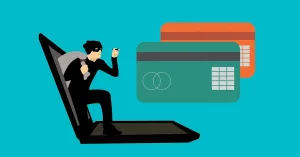
If you own a small business and/or accounting firm, there is one thing you can all agree on; mobile is the wave of the future. Mobile usage is at an all time high and growing. This report from MarketingLand.com states that "as of December 2015, mobile audiences for the top 100 digital properties, in the aggregate, have surpassed the desktop audience. And while the total number of smartphone owners has not yet trumped the PC audience, that will likely come either late this year or in 2017."
The evidence is clear that if you haven't gone mobile with your small business, you are missing out. But along with increased profits from going mobile comes the added threat of security risks unique to mobile devices. To help you keep your mobile device and its data secure, we offer the following 10 tips:
10 Tips for Keeping Your Mobile Device and Its Data Secure
1. Use a Secure Lock Screen
The first line of defense is a secure screen lock. This could be a strong password or perhaps a bio-metric lock such as a fingerprint scanner. That way, someone who casually recovers your lost device, for example, won’t have instant access.
2. Enable Location Settings
The best case scenario for a lost or stolen phone is to be able to find it quickly. You can greatly increase your chances of doing just that by enabling “location settings” ahead of time. For example, the Find My iPhone feature available for iPhones and iPads helps you identify where your lost device may be by ringing your phone and including a helpful screen message as to how to contact you, the owner, as well as tracking your device. Similar services are available for Android, Windows and Blackberry devices.
3. Use a Remote Wipe Security Application
Remote wipe security applications give businesses the ability to “wipe” or lock down devices from a distance. Some wireless providers offer this option, as do some Internet security software providers. One very important use for the wipe security feature is that a business-wide application can allow your systems administrator to secure sensitive company data in the event an employee with a company cell phone quits or is terminated without turning over their phone.
4. Use Encryption
Encryption converts data into code that is not easily deciphered. While not foolproof, encryption does make it harder for hackers to intercept data and communications transmitted wirelessly.
5. Avoid Open Public Wi-Fi
Anyone with a small business who travels will find that they have to resort to using public wifi with their mobile device to communicate. When you connect your mobile device to public Wi-Fi, you leave your data open to potentially being accessed by anyone else on that Wi-Fi network. If you work while out and about, or if you travel a lot, consider investing in a mobile hotspot of your own, one that uses your wireless carrier’s network connection, and not rely on public Wi-Fi.
6. Disable Automatic Wi-Fi Connect Features
For the reasons mentioned in point 5, be sure to turn off your automatic Wi-Fi connection settings in your phone or tablet. Some devices have such settings enabled. Turn them off so your device doesn’t connect to an insecure network without you realizing it.
7. Deploy a Virtual Private Network
A virtual private network or VPN is a type of connection that allows all devices located remotely to securely share data to and from the company network. It creates a private encrypted tunnel for data to pass through between mobile devices and your company systems.
8. Back Up Data
You can’t completely prevent your device from getting destroyed, such as in a car crash or by dropping it off a boat. So just in case, it’s a good idea for you to automatically back up data and files such as photos and videos, in the cloud. That way you can still access data no matter what disaster befalls your device.
9. Research Apps Before Downloading
If an app isn’t from a trusted source, you could potentially be downloading malware or some other security threat to your device. The major app marketplaces such as Google Play and Apple Store have gotten good at screening apps for security issues. Before you download an app, though, do some research to be sure other users aren’t reporting security issues.
10. Use Anti-Virus and Security Protection
The major anti-virus and security software vendors such as Norton, Kaspersky and McAfee offer applications that protect mobile devices from viruses, spyware and other malware that can get in and spread to your business network. Some network providers and wireless providers also provide security. Look for mobile or multi-device protection application. Such software may be coupled with remote wipe/ lock protection, doing double duty.
These 10 techniques can make using mobile devices more secure while you continue to delve into the added benefits of going mobile with your small business.



















Add comment